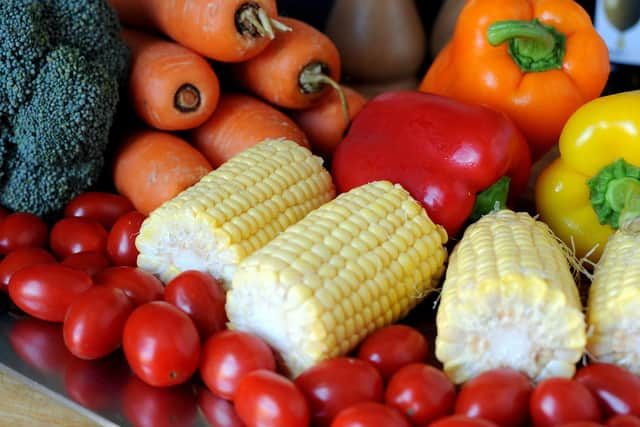Mediterranean diet: Could olive oil, lemons and tomatoes drop off the UK menu due to climate change?
New analysis certainly suggests getting hold of some of our favourite Mediterranean foodstuffs could become increasingly difficult as the impacts of rising temperatures and severe weather threaten supplies.
The report, from the Energy and Climate Intelligence Unit (ECIU) – an independent, non-profit research organisation – comes shortly after meteorologists confirmed this July was the planet’s hottest month on record and followed the hottest June in modern human history.
Advertisement
Hide AdAdvertisement
Hide AdDuring the first and third weeks of last month, global temperatures also temporarily exceeded the warming danger threshold – 1.5C above pre-industrial level – set out in the Paris Agreement – the first time this has happened during July.
Europe has warmed at twice the rate of the worldwide average over the past three decades, with nations in southern Europe and northern Africa around the Mediterranean suffering some of the greatest heat extremes ever in recent years.
Many countries, including much of Europe and north Africa, have been struck by enduring droughts, flash flooding and a multitude of deadly wildfires. As well as claiming countless human lives, the extreme conditions have seen homes and businesses destroyed and caused major damage to nature and wildlife.
Farming and agriculture have been badly affected, with crops failing in many places.


This has implications for local populations, but also for Britons, with almost half of UK food shipped in from overseas.
According to the report, just over a quarter of imports – 9.8 billion kilograms, worth just over £16 billion – came from the Mediterranean region in 2022. The majority was staple fresh produce like fruit and vegetables.
Gareth Redmond-King, head of international programme at ECIU, said: “Even when we’re not experiencing extreme weather, we are not immune to its impacts in a globalised world. Shortages of salad and other vegetables in UK supermarkets in February this year, caused by extremes in southern Spain and north Africa, brought home to people just how vulnerable the UK is to the impacts of climate change on our food.
“But as the news this summer has daily showed the Mediterranean ravaged by vicious heatwaves, wildfires and drought, it’s sobering to realise just how much we rely on food imports that come from parts of the world most at risk from the changing climate.”
Advertisement
Hide AdAdvertisement
Hide AdHe warned shortages would further drive up food prices, which have been spiralling lately. “The heat we’ve seen in Europe this summer and in April would be all but impossible without climate change,” he said.
“These impacts will worsen as we continue to burn fossil fuels and emit greenhouse gases, leaving the UK facing an unpleasant reality in a future of more shortages and higher costs. This should be a wake-up call about the vulnerability of our food supply chains to climate change.
“We can’t simply grow our way out of the problem by producing many of these foods in the UK. The only sure-fire way to avoid even worse and more dangerous impacts is to keep global temperature rises to 1.5C, and the only way to do that is to cut our emissions to net zero.”
Comments
Want to join the conversation? Please or to comment on this article.